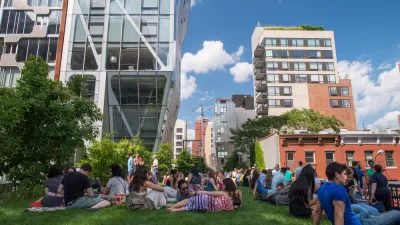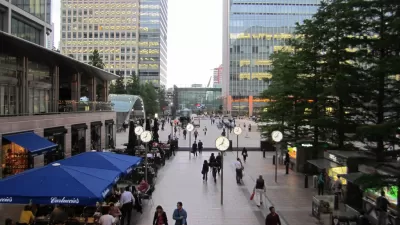A few regions have hoarded the growth of the tech innovation economy. A Brookings paper argues that Congress can help distribute tech innovation in growth centers around the Heartland of the United States.

A Brookings study bases recommendations for a federal program for tech industry growth on the data that shows just five metropolitan areas—Boston, San Francisco, San Jose, Seattle, and San Diego—"accounted for more than 90% of the nation’s innovation-sector growth during the years 2005 to 2017."
"The future of America’s economy lies in its high-tech innovation sector, but it is now clear that same sector is widening the nation’s regional divides," according to a Brookings article by Robert D. Atkinson, Mark Muro, and Jacob Whilton.
"Based on 'winner-take-most' network economies, the innovation sector has generated significant technology gains and wealth but has also helped spawn a growing gap between the nation’s dynamic 'superstar' metropolitan areas and most everywhere else," according to the article, to follow up on the point about widening divides.
So how does the trio suggest that tech innovation centers can be rolled out across the United States to the benefit of more people and places? Think of a New New Deal, of sorts: "Specifically, the nation needs—as one initiative among others—a massive federal effort to transform a short list of 'heartland' metro areas into self-sustaining 'growth centers' that will benefit entire regions."
The article is written to promote a new paper that proposes additional, specific actions to further that purpose. The article linked here includes more detail and data on the challenges facing the uneven integration of the tech sector into the fabric of communities around the country.
For instance, place-based interventions will be essential to achieve a more equal region distribution of tech industry growth. This challenge can't be left to the market alone, according to the article.
A separate article by Cat Zakrewski provides commentary and analysis of the Brookings pitch for growth centers.
FULL STORY: The case for growth centers: How to spread tech innovation across America

Planetizen Federal Action Tracker
A weekly monitor of how Trump’s orders and actions are impacting planners and planning in America.

Map: Where Senate Republicans Want to Sell Your Public Lands
For public land advocates, the Senate Republicans’ proposal to sell millions of acres of public land in the West is “the biggest fight of their careers.”

Restaurant Patios Were a Pandemic Win — Why Were They so Hard to Keep?
Social distancing requirements and changes in travel patterns prompted cities to pilot new uses for street and sidewalk space. Then it got complicated.

California Homeless Arrests, Citations Spike After Ruling
An investigation reveals that anti-homeless actions increased up to 500% after Grants Pass v. Johnson — even in cities claiming no policy change.

Albuquerque Route 66 Motels Become Affordable Housing
A $4 million city fund is incentivizing developers to breathe new life into derelict midcentury motels.

DC Area County Eliminates Bus Fares
Montgomery County joins a growing trend of making transit free.
Urban Design for Planners 1: Software Tools
This six-course series explores essential urban design concepts using open source software and equips planners with the tools they need to participate fully in the urban design process.
Planning for Universal Design
Learn the tools for implementing Universal Design in planning regulations.
Heyer Gruel & Associates PA
JM Goldson LLC
Custer County Colorado
City of Camden Redevelopment Agency
City of Astoria
Transportation Research & Education Center (TREC) at Portland State University
Camden Redevelopment Agency
City of Claremont
Municipality of Princeton (NJ)





























